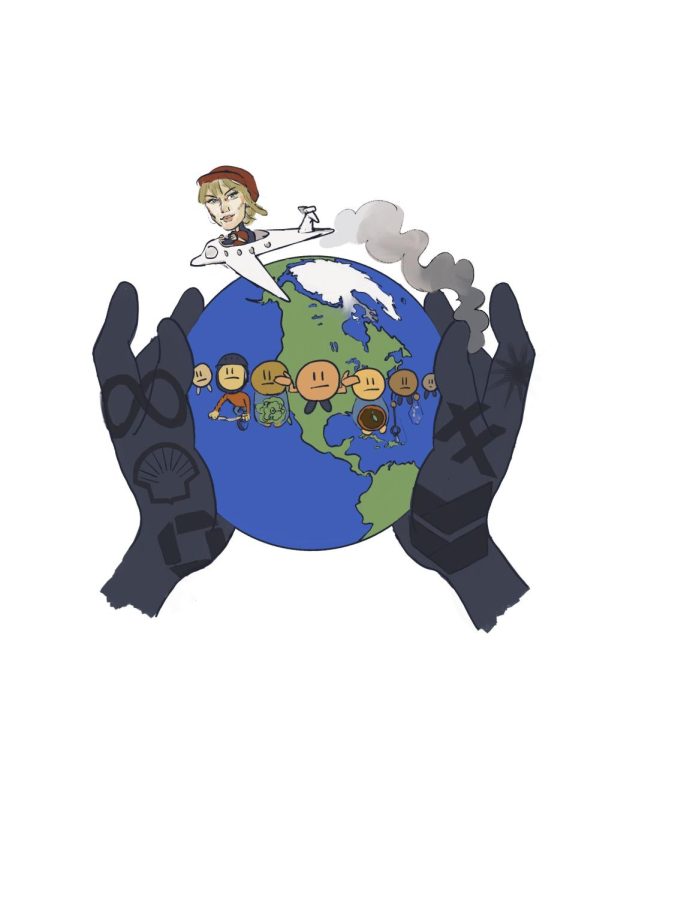What can we do?
Coming to terms with the individual impact we have on combating climate change
October 14, 2022
Bike to school instead of driving. Eat less meat. Turn off the lights when you leave the room. Don’t use plastic utensils.
In the last century, the Earth’s temperature has increased by 2 degrees Fahrenheit due to human behavior. If this trend continues, there will be catastrophic consequences — some of which are already emerging — such as major heat waves and flooding, mostly impacting lower socioeconomic communities and magnifying the effects of the income gap. So, as unintentional contributors to the cause, we often embed small practices in our lives to try to help alleviate the impacts of a devastating situation.
But our mild inconveniences are outweighed by the monetary profits big companies reap through choosing to invalidate or simply ignore climate change. According to The Guardian, since 1988, 100 companies have caused 70% of the world’s industrial greenhouse gas emissions, and more than half of those emissions can be traced back to just 25 corporations.
When compared to these 25 corporations, our efforts appear minimized, outweighed and essentially negated. How much of an impact does choosing to bike have when Taylor Swift has used her private jet 170 times in 2022, with flight emissions 1,184 times higher than the average person? Looking at these statistics, it may feel like there’s nothing we as individuals can do to fight climate change which perhaps stirs up a feeling of powerlessness.
As individuals, there are some ways we can contribute to the fight against climate change on a larger scale. We can choose to support companies that have made commitments to fighting climate change: Apple has invested $4.7 billion into green technology and Nike intends to run on 100% renewable energy by 2025. We can also harness the power of grassroots democracy to create change by writing letters to our state representatives and senators asking them to support environmentally friendly bills.
However, our individual contributions to a collective entity rely on someone else to follow through: we expect Apple to continue investing in green technology and our senators to read our letters and advocate for climate friendly bills. Realizing this, we again return to a feeling of powerlessness — a lack of agency that means acknowledging that our efforts will never amount to what we hope they will.
How are we supposed to deal with that?
Unless we have some loophole that can somehow magnify our individual impacts to a tangible extent, we just have to validate this feeling of powerlessness and, more importantly, realize that there’s nothing wrong with it. We are just one person in a world of almost eight billion and our power to make change is limited. Accepting that biking to school will not solve climate change or balance out the harmful emissions is one step toward realizing that we as individuals should not have to bear the responsibility of the health of our planet.
But this shouldn’t be an excuse for inaction. The worst thing we can do for the fight against climate change is to give up hope, because we would be not only conceding the possibility for saving our planet, but also essentially exacerbating climate change by choosing not to take action against it. Instead, we have to recognize that our role in the solution is minimized, and as long as we continue practicing climate-friendly habits, that’s the most we can and should expect from ourselves.



















